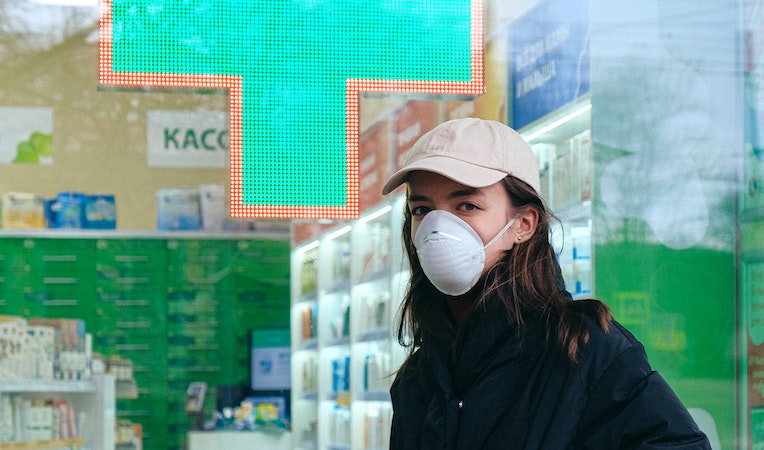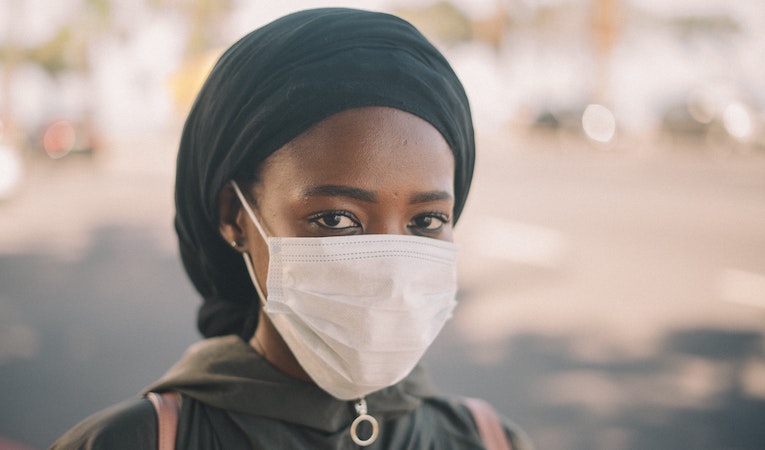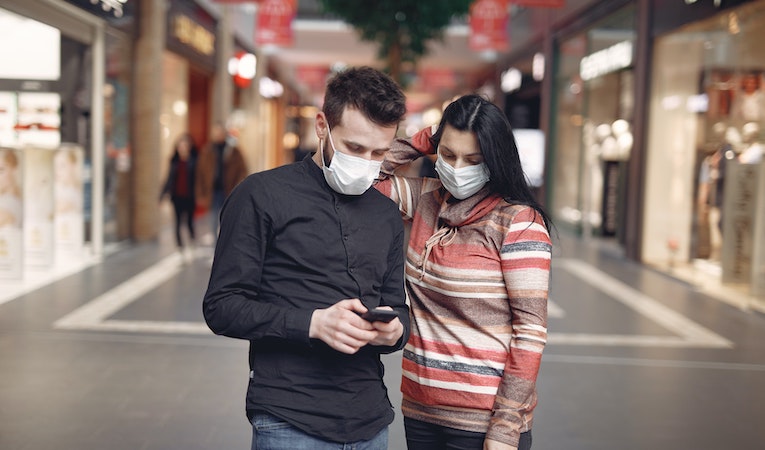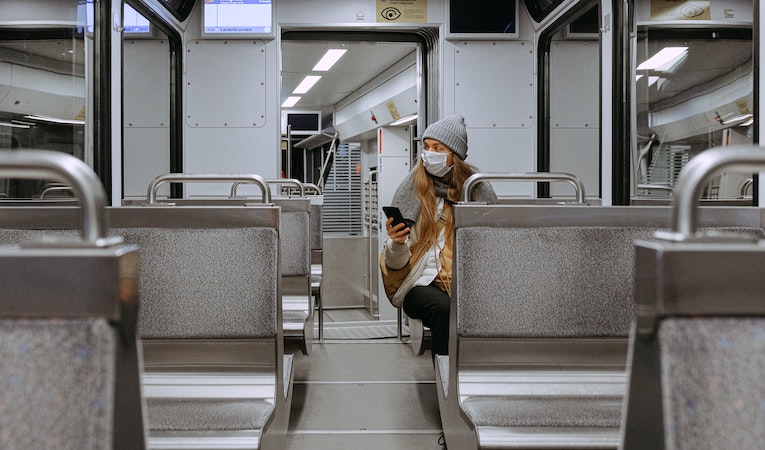As you think about packing your bags for your next adventure, and possibly first in the age of Covid, you might be wondering what you need to know if you haven’t traveled in a while. Or, maybe you’re simply curious about how to prepare for international travel when there are so many different requirements from place to place, not only depending on where you’re going, but also where you’re departing from. Nowadays, it can all have an impact on travel requirements.

And while traveling during Covid is definitely different, it doesn't need to be difficult. After all, modern travel has always included recommendations and requirements for things like immunizations, medical coverage, and proof of specific wellness plans.
So, even though traveling during a pandemic might feel a bit unusual, there are all kinds of things you can do to make sure you’re prepared.
How has travel changed during Covid?
Perhaps the biggest difference connected to traveling in the new normal, including the process of preparing for international travel, is the fact that everywhere you go, people are talking about it.
Prior to Covid, there might have been some well-known health concerns in various places you might visit, like Malaria in parts of Africa or concerns about food-borne and water-borne illnesses in various parts of the world. However, these tended to be localized concerns.
Covid is a truly global pandemic, with resources for immunization and treatment that vary from place to place, just as the requirements for incoming or outbound travel are different.
This means that while you might ask yourself how travel has changed during the pandemic, what you’re really considering is how travel has changed based on the resources and requirements available to and within the places you’re going to be.
But that doesn’t mean there aren’t guidelines to follow or things you can do to prepare. As with anything, you’ll want to do your research—and you can start with our list of tips below.
How to prepare for international travel during Covid
Editor’s note: This information was accurate at the time of publication (February 2022). Please consult the Center for Disease Control and World Health Organization for the most up-to-date guidance on traveling during Covid.
This list will help you know where to start when it comes to planning travel during Covid, so consider it a great place to start. However, remember that border restrictions and travel requirements can change abruptly, so it’s always important to consult multiple sources before booking your travels.
1. Make sure you check immunization requirements before you go

Immunization requirements can vary from place to place, but your destination is going to have some kind of expectation around immunization. This is also the case for your return home. If you’re a US citizen preparing for international travel, the CDC position is that you should not travel unless you are fully vaccinated. Also, you’ll need proof of a negative Covid-19 test taken within 24 hours of your return.
2. Research requirements for quarantine upon arrival
As with immunizations, when it comes to travel during the pandemic, the requirements for quarantine will also vary based on your departure location and your destination. If you’re a US citizen, you can find information and quarantine requirements for everywhere from Afghanistan to Zimbabwe on the State Department website. So, when you’re ready for an adventure in Iceland, you can be sure of exactly what you need to do before you go.
3. Have an action plan in case you get sick while abroad
You’re going to do all the right things while traveling during Covid, but you could still get sick—the same as would be the case if you stayed at home. The most important thing is knowing what to do if you get sick abroad, and how to prevent it.
With so many prevention measures now commonplace, from wearing masks in public to social distancing in supermarket lines, there are plenty of ways to keep yourself safe;still, knowing what to do in case of transmission is the best for traveling in the new normal.
4. Consider travel insurance—and know what it does (or doesn’t) cover

When you’re traveling during Covid, keep in mind that your travel insurance policy might not cover the things you expect (like hospitalization in the instance of Covid), so be sure to compare to find the best policy for your needs.
Surprisingly, some travel insurance policies have specific clauses that exclude Covid from their coverage. That’s why it’s important to read the fine print and consider what might be available to you at your destination, including checking the capacity of local hospitals in response to ongoing surges.
5. Do your research before you leave for the airport and allow plenty of time for check-in
Remember that preparing for international travel means you consider everything that might take just a bit longer at the airport. Traveling in the new normal requires flexibility, thoughtful planning, but also a strict adherence to guidelines from authorities like the TSA.
So if you’re heading to Paris to study abroad, you’ll research what the Paris airports will require of you and allow plenty of time to make it happen.
6. Pack the things you’ll need to have on hand for super-safe travel
When it’s time to pack for travel during the pandemic, there are some things you’ll want to bring to have on hand, like hand sanitizer (in flight-friendly containers), contactless credit cards, masks, and a water bottle.
This is one example of how travel has changed, but there’s no need to be inconvenienced if you plan ahead. This way, whether you go on a heritage tour of Greece or a conservation internship in Costa Rica, you will be prepared whether you’re in a museum or on the beach!
7. Keep in mind that capacity rules, reservations, and access will have changed

When you travel during a pandemic, you might not have the luxury of popping in for a quick bite, a drink, or an unplanned visit to a museum. With the impact of supply chain concerns, staffing shortages, and capacity limits for social distancing, ease of access to many public spaces has changed.
Make sure to call ahead if you’re planning a dinner at a popular restaurant or a museum tour, make a reservations if necessary, or get your tickets in advance. That way, your trip won’t need to suffer from unforeseen roadblocks.
8. Be thoughtful—but be safe!
As you travel during the pandemic, it could be tempting to have unrealistic expectations about the behavior or resources available in the places you might visit. Keeping in mind that many parts of the world are still lacking access to reliable vaccines or medical care is important. (This is where it can be especially important to take the CDC’s recommendations seriously.) While you don’t want to harshly judge your destination, you also don’t want to be lulled into a false sense of security, or put others at risk of exposure. Remember to act thoughtfully but always work to keep yourself and others safe!
9. Know your plan for local lockdown
In the event that your travel home would be compromised, it’s important to have a local lockdown plan when preparing for international travel. At this point, most places have already experienced some form of social lockdown or mass quarantine, but you’ll want to do some research on what that looked like and what plans might exist to help non-residents navigate the experience. You might even contact the local embassy for your home country to find out what they recommend.
10. Be sure to schedule your PCR test for a return home

If you’re traveling back to the US, you will absolutely need a negative PCR test to return home. As of writing (February 2022), the required timeline is 24 hours or less.
A PCR test is required for most places you would travel to, taken between 1-3 days prior to departure, with very few exceptions. The best way to make sure you can make that happen in a timely way is to schedule the test for the appropriate day at least a week before your flight.
This way, you’ll find out more about expected turnaround times at the clinic where you scheduled your test, and you’ll know that you’ll for sure be getting one. You can also make changes to your test date or develop a back-up plan (in case of a positive test) before you leave, to provide yourself with some extra peace of mind.
Traveling in the new normal is uncertain
When you think about how travel has changed, the pandemic provides constant reminders that traveling in the new normal requires comfort with uncertainty and a tolerance for change. Every day we learn new things about the pandemic, but also about our global response.
As someone committed to meaningful travel, it comes down to planning ahead, doing your research, and keeping your focus on safety—because your adventure awaits!
